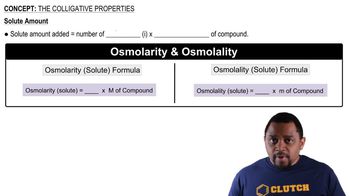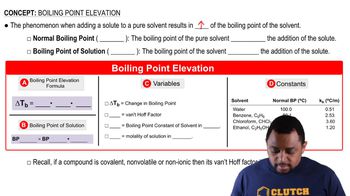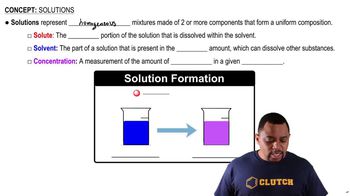Textbook Question
You make a solution of a nonvolatile solute with a liquid solvent. Indicate if each of the following statements is true or false. (a) The freezing point of the solution is unchanged by addition of the solvent.

 Verified step by step guidance
Verified step by step guidance



You make a solution of a nonvolatile solute with a liquid solvent. Indicate if each of the following statements is true or false. (a) The freezing point of the solution is unchanged by addition of the solvent.
You make a solution of a nonvolatile solute with a liquid solvent. Indicate if each of the following statements is true or false. (b) The solid that forms as the solution freezes is nearly pure solute.